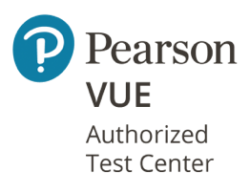Course Details
Topic 1: Basics of ESD
- Static Charge Generation
- How ESD Occurs
- Types of ESD Events (HBM, MM and CDM) in IC chips
- ESD Catastrophic and Latent Failure Modes
- Economic and Operational Impact of ESD on IC Manufacturing Processes
Topic 2: ESD Control Principles, Equipment and Practices
- Grounding and Bonding Principles
- Electrostatic Field Shielding
- Elimination or Reduction of Charge Generation
- Proper Handling and Storage of ESD-sensitive (ESDS) Items
- Grounding Systems (Grounded Workstations, Grounding Wrist Straps and Footwear)
- Anti-static Materials (ESD Mats, Conductive Bags and Containers)
- Ionization Devices (Air Ionizers for Neutralizing Charges)
- ESD Monitoring Equipment (ESD Monitors and Alarms)
- ESD Control Garments (Smocks, Gloves and Finger Cots)
- Setting Up EPA
- ESD-Safe Packaging and Transport
- Maintenance of ESD Control Equipment
- Common Mistakes to Avoid in ESDS Environment
Topic 3: ESD Control Standards, Testing and Auditing
- Overview of Relevant ESD Control Standards (ANSI/ESD S20.20 and IEC 61340)
- Compliance Requirements for ESD-Controlled Environments
- ESD Control Testing Procedures (Wrist Strap and Footwear Testing, Surface Resistance Testing and Ionization Efficiency Testing)
- Periodic Auditing of ESD Control Measures
- ESD Performance Metrics
Topic 4: Employee Training and Awareness of ESD Control
- Role of Employees in ESD Control
- Fostering Awareness of ESD-Safe Behavior
- Identifying, Analyzing and Reporting ESD Incidents
- Corrective Actions to Mitigate Future ESD Risks
- Certification of Competency in ESD Control
Course Info
Promotion Code
Your will get 10% discount voucher for 2nd course onwards if you write us a Google review.
Minimum Entry Requirement
Knowledge and Skills
- Able to operate using computer functions
- Minimum 3 GCE ‘O’ Levels Passes including English or WPL Level 5 (Average of Reading, Listening, Speaking & Writing Scores)
Attitude
- Positive Learning Attitude
- Enthusiastic Learner
Experience
- Minimum of 1 year of working experience.
Target Age Group: 18-65 years old
Minimum Software/Hardware Requirement
Software:
TBD
Hardware: Window or Mac Laptops
Appeal Process
- The candidate has the right to disagree with the assessment decision made by the assessor.
- When giving feedback to the candidate, the assessor must check with the candidate if he agrees with the assessment outcome.
- If the candidate agrees with the assessment outcome, the assessor & the candidate must sign the Assessment Summary Record.
- If the candidate disagrees with the assessment outcome, he/she should not sign in the Assessment Summary Record.
- If the candidate intends to appeal the decision, he/she should first discuss the matter with the assessor/assessment manager.
- If the candidate is still not satisfied with the decision, the candidate must notify the assessor of the decision to appeal. The assessor will reflect the candidate’s intention in the Feedback Section of the Assessment Summary Record.
- The assessor will notify the assessor manager about the candidate’s intention to lodge an appeal.
- The candidate must lodge the appeal within 7 days, giving reasons for appeal
- The assessor can help the candidate with writing and lodging the appeal.
- he assessment manager will collect information from the candidate & assessor and give a final decision.
- A record of the appeal and any subsequent actions and findings will be made.
- An Assessment Appeal Panel will be formed to review and give a decision.
- The outcome of the appeal will be made known to the candidate within 2 weeks from the date the appeal was lodged.
- The decision of the Assessment Appeal Panel is final and no further appeal will be entertained.
- Please click the link below to fill up the Candidates Appeal Form.
Job Roles
- ESD Control Engineer
- Electronics Manufacturing Specialist
- Quality Assurance Engineer
- Safety Compliance Officer
- Product Design Engineer
- Process Improvement Specialist
- Maintenance Technician
- Facility Operations Manager
- Environmental Health and Safety Specialist
- Semiconductor Engineer
- Technical Training Coordinator
- Circuit Board Assembly Technician
- Production Supervisor
- Engineering Consultant
- Electrical Systems Analyst
- Robotics Engineer
- Device Calibration Specialist
- Reliability Engineer
- Test and Measurement Technician
- Industrial Engineer
Trainers
Dr. Lai Weng Hong: A skillful, resourceful and passionate leader of large-scale and complex endeavors in the semiconductor industry.
27 years of successful public-private partnership management, program management, business development and engineering experience across the entire semiconductor supply chain from design, fabrication, testing and failure/material analysis.
Founding Chairman of the National Committee for Semiconductor Devices and Technology in collaboration with Enterprise Singapore and the International Electrotechnical Commission (IEC) since 2014. Honorary Secretary of Executive Committee of the Singapore Semiconductor Industry Association (SSIA) from 2011 to 2019. Chairman of Management Council Strata Title 4071 since 2020.
Skilled in forging collaborative, harmonious and efficient working relationships across roles, sectors, cultures and nationalities. Keen eye for opportunities and gaps with the ability to respond quickly and effectively to address them. Well-connected to other leaders in the semiconductor and other industries as well as government agencies. Highly proficient in both oral and written English and Chinese technical communication.
Customer Reviews (1)
- will recommend Review by Course Participant/Trainee
-
. (Posted on 6/26/2023)1. Do you find the course meet your expectation? 2. Do you find the trainer knowledgeable in this subject? 3. How do you find the training environment






















